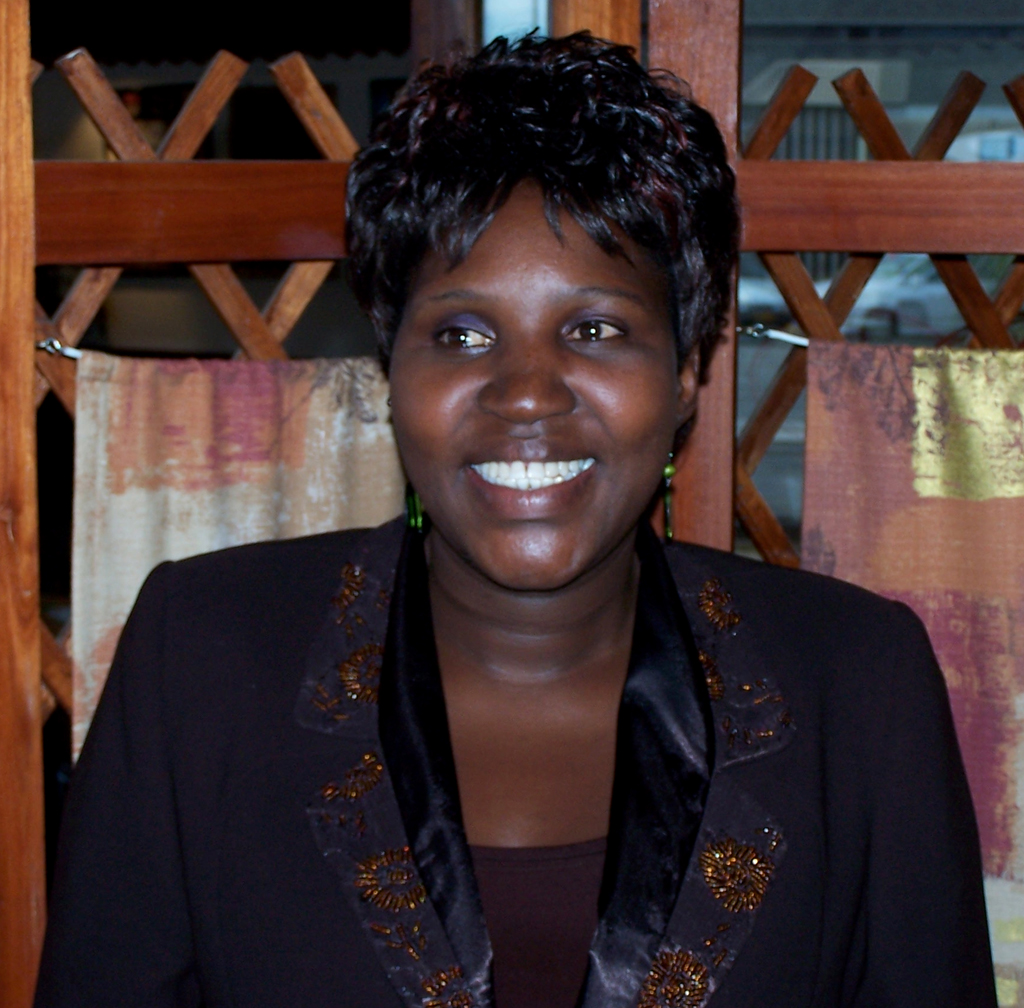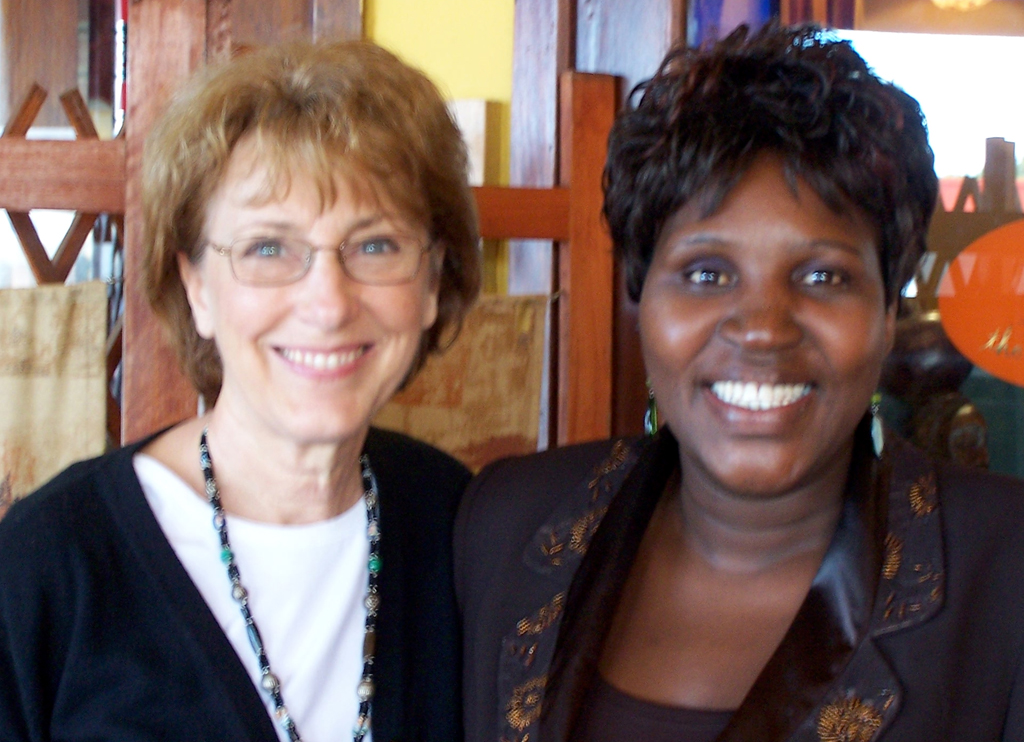
Hello. My names are Lucia Gunguwo. I was a throw-away child. My mother abandoned me when I was born. I would have died, but my grandmother didn’t want to see a baby die, so she kept me alive.
My grandmother was the second wife of a man who lived in Mtoko, Zimbabwe. In our culture, it was OK to have more than one wife, but it was not OK to have a child out of wedlock. Because I was an illegitimate child, I was not allowed to stay in her husband’s house. She kept me outside in a box, like one of the family’s animals.
From earliest childhood, I was constantly told that I was a shame and a burden to the family. “When will we be relieved of this disgrace to our family?” they often said. “We must find who is the father and make him take responsibility for her.”
So, as was the custom in our community, they took me to someone who was supposed to have magical powers, someone who could determine who caused me to be born—a witch doctor. This man could say, “This one or that one is the father,” then the person he identified must pay for the care of the child. However, when I was brought before the seer, in spite of the fact that my grandfather had paid a large sum, and in spite of his many conjurings, the witch doctor finally said, “I cannot tell who fathered this child.” That made my problems much worse. Now I was a curse upon the family, and they reminded me of that all the time.
When I was about five or six (I can’t remember), my grandfather divorced my grandmother and sent her back to the reserve. Since he was no longer bound to have me in his home, he gave me to his younger brother, not as a family member, but as a servant. Even before I reached schooling age, I had to prepare food for the family, fetch water (in a pot, which I carried on my head), find firewood from as far as three or four kilometers away, and tend to the family’s goats and cattle and chickens. When I did begin school at age seven, I could only leave the house after the rice had been prepared. My only food in the morning was what I could eat from the pot lid. In the evening, I ate what was scraped from the plates.
I loved schoolwork, and I was very bright, but I was not always allowed to attend. However, my classmates treated me badly. In our culture, names are very important. Your name says which clan you are from and what is your family’s totem. But I could not produce a birth certificate, so I had no name. I was nobody. I was an outcast. The other students stayed away from me and called me “Gune” (Goo-nay), which is a bad name for an illegitimate child. And I had no proper clothes. I wore discarded rags and sometimes only coverings which I made from newspapers.
At “home,” the bigger I grew, the worse things became. I was blamed for everything that went wrong. My uncle and his wife would beat me severely, sometimes so badly I could not sit down. One time, my uncle’s wife said, “There is a poisonous snake in the chicken run. Go kill it before it attacks our chickens.”
“But it might bite me,” I said.
“Just make sure it doesn’t bite the chickens!” she responded. That’s how worthless they considered me to be.
The most shameful abuse happened to me when I started Form 1 (high school). One of my grandmother’s other children attacked me sexually. That was bad enough, but he went to my school and bragged to his friends about what he had done. He threatened to kill me if I told anyone what really happened. From that time, boys acted like they could do anything they wanted to do with me. They called me “Prostitute,” and greeted me with crude words and gestures. I had to fight my way to get to school, but school was my only hope of escaping this prison.
When I was 13, I was invited by some classmates to attend a meeting called Scripture Union. Before the Christian lesson was given, the students sang a song which reached deep into my soul: “I have a Father. . .” It had words about Someone who loved me as His own child, Someone who would never leave me, Someone who understands all my sorrows. Before the invitation was ever given, I had already prayed in a whispered voice, “Daddy, wherever You are, please receive me as Your child. All I ever wanted was a Father like You.” I knew He was the One I had been looking for all my life.
From that time, I began attending church with my new friends. Many difficult things still happened, and many problems inside my head had to be sorted out, but my Father opened doors for me I never would have believed. One day, while sitting in the empty church, I asked God, my Father, “Why have You chosen me?” And He said, “So you can do my work.” And at that time, He gave me a vision of helping many children from bad backgrounds who also need to know a Heavenly Father, even if they have no earthly father.
So, today, to make this long story short, God has given me a wonderful husband and four children. We began a ministry together, calling people to believe in Jesus and gathering them into churches, mostly under trees at first. We also began gathering orphans into our homes. When we began working with Heart of Africa in 1998, we had 14 churches and 18 orphans living with us in our two-room house. Today my husband Tatenda is bishop over more than 500 churches, and I am in charge of caring for 275 orphans in five centers in the capital city of Harare under the auspices of Horizon, International. Each Easter I speak to more than 4,000 women at our Women’s Conferences, and I have a daily radio program to help women be strong Christians in their homes and communities.
Best of all, I have what I always wanted: a Father.

Lucia and Martha Henderson
